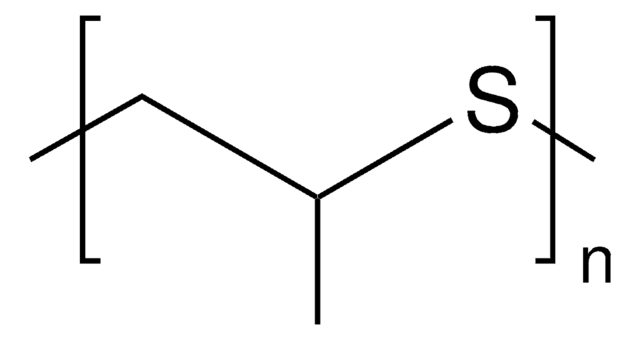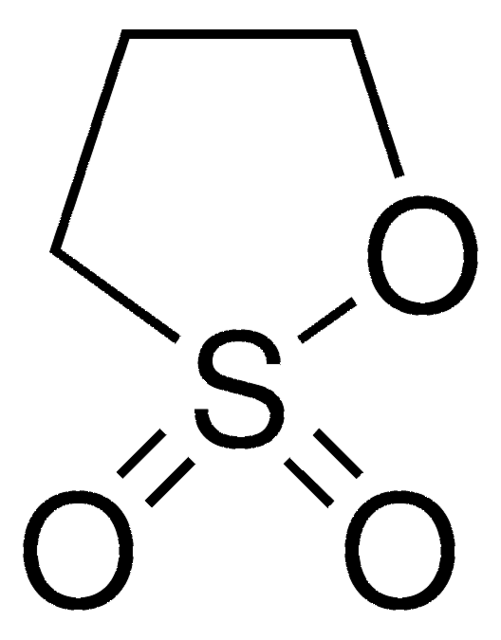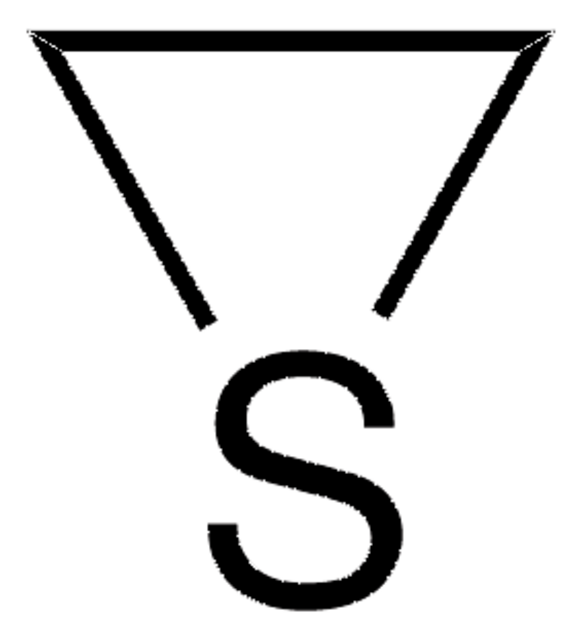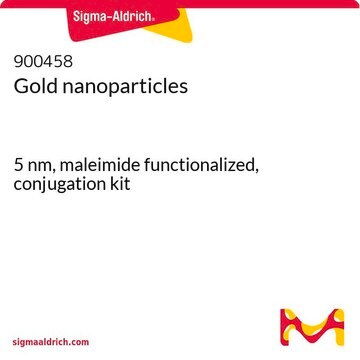P53209
Propylene sulfide
≥96%
Synonym(s):
Methylthiirane
Sign Into View Organizational & Contract Pricing
All Photos(1)
About This Item
Empirical Formula (Hill Notation):
C3H6S
CAS Number:
Molecular Weight:
74.14
Beilstein:
383559
EC Number:
MDL number:
UNSPSC Code:
12352100
PubChem Substance ID:
Recommended Products
Assay
≥96%
refractive index
n20/D 1.475 (lit.)
bp
72-75 °C (lit.)
density
0.946 g/mL at 25 °C (lit.)
storage temp.
2-8°C
SMILES string
CC1CS1
InChI
1S/C3H6S/c1-3-2-4-3/h3H,2H2,1H3
InChI key
MBNVSWHUJDDZRH-UHFFFAOYSA-N
Looking for similar products? Visit Product Comparison Guide
Signal Word
Danger
Hazard Statements
Precautionary Statements
Hazard Classifications
Acute Tox. 3 Oral - Acute Tox. 4 Inhalation - Eye Irrit. 2 - Flam. Liq. 2 - Skin Irrit. 2
Storage Class Code
3 - Flammable liquids
WGK
WGK 3
Flash Point(F)
50.0 °F - closed cup
Flash Point(C)
10 °C - closed cup
Personal Protective Equipment
dust mask type N95 (US), Eyeshields, Gloves
Choose from one of the most recent versions:
Already Own This Product?
Find documentation for the products that you have recently purchased in the Document Library.
Customers Also Viewed
Masamichi Yamanaka et al.
Chemical communications (Cambridge, England), (15)(15), 1690-1691 (2004-07-28)
Three chiral guests in a cylindrical capsule led to six diastereomeric complexes.
Cong-Duan Vo et al.
Macromolecular rapid communications, 34(2), 156-162 (2013-01-16)
We report for the first time the combination of ATRP and ring-opening episulfide polymerization as a means to synthesize polysulfide-based low-dispersity amphiphilic block copolymers. The most significant finding is the possibility to perform ATRP under mild conditions using poly(propylene sulfide)
J P Bearinger et al.
Nature materials, 2(4), 259-264 (2003-04-12)
Alkanethiolates have been widely used as chemisorbates to modify gold surfaces, in spite of their relatively poor oxidative stability. We introduce gold-chemisorbing block copolymers bearing an anchoring block of poly(propylene sulphide) (PPS), selected in the expectation of greater stability. These
Biomaterials: Stable antifouling surfaces.
Ralph G Nuzzo
Nature materials, 2(4), 207-208 (2003-04-12)
T Matsuda et al.
Cancer letters, 86(2), 229-234 (1994-11-11)
Two organosulfur compounds, methyl propyl disulfide (MPD) and propylene sulfide (PS) from garlic and onions, were studied for their modifying effects on hepatocarcinogenesis in the F344 rats. Modifying potential was scored by comparing the number and area per cm2 of
Our team of scientists has experience in all areas of research including Life Science, Material Science, Chemical Synthesis, Chromatography, Analytical and many others.
Contact Technical Service
















![1,8-Diazabicyclo[5.4.0]undec-7-ene 98%](/deepweb/assets/sigmaaldrich/product/structures/120/564/5b373e23-1624-489c-8efb-692de0f96ffb/640/5b373e23-1624-489c-8efb-692de0f96ffb.png)